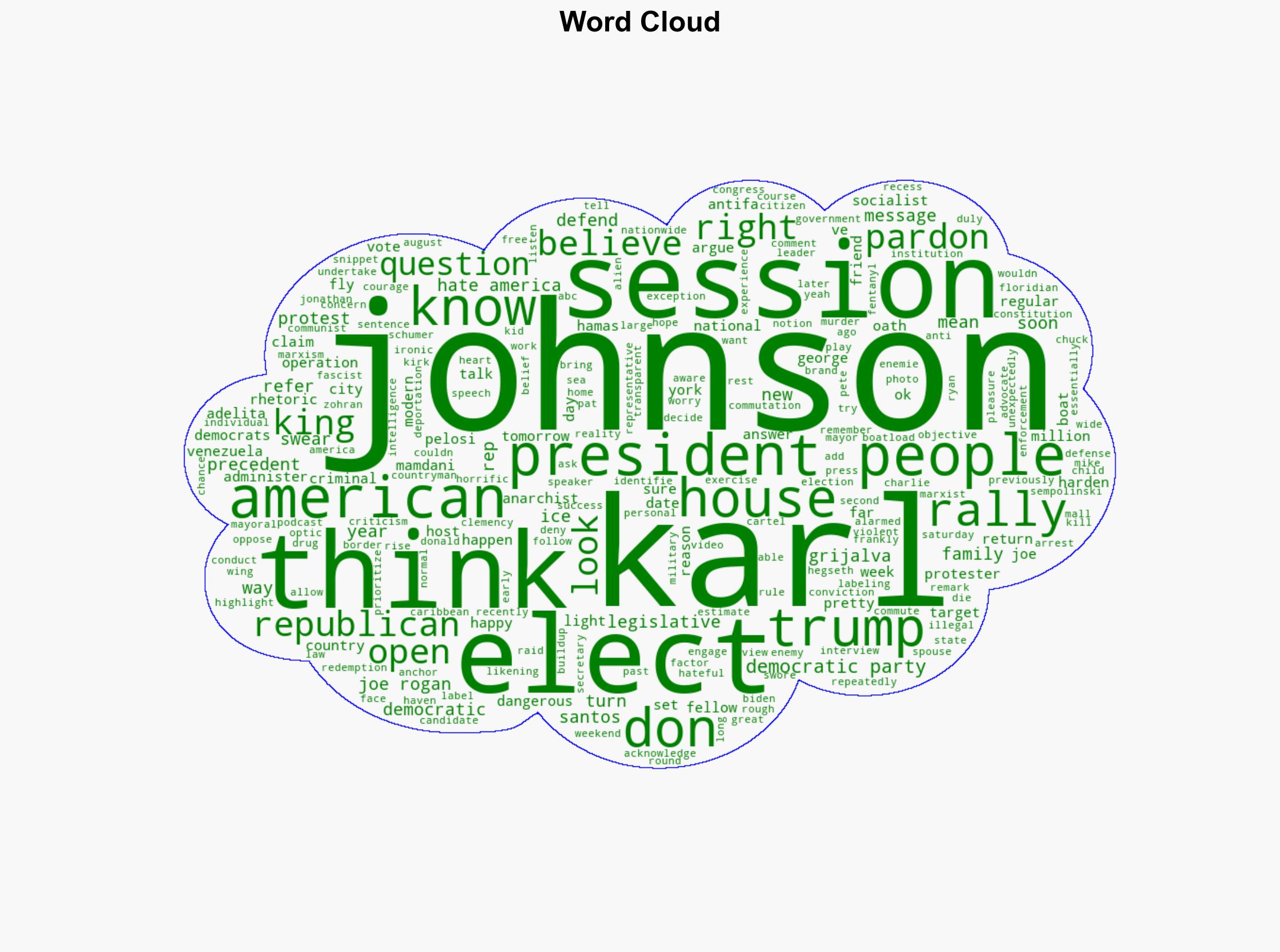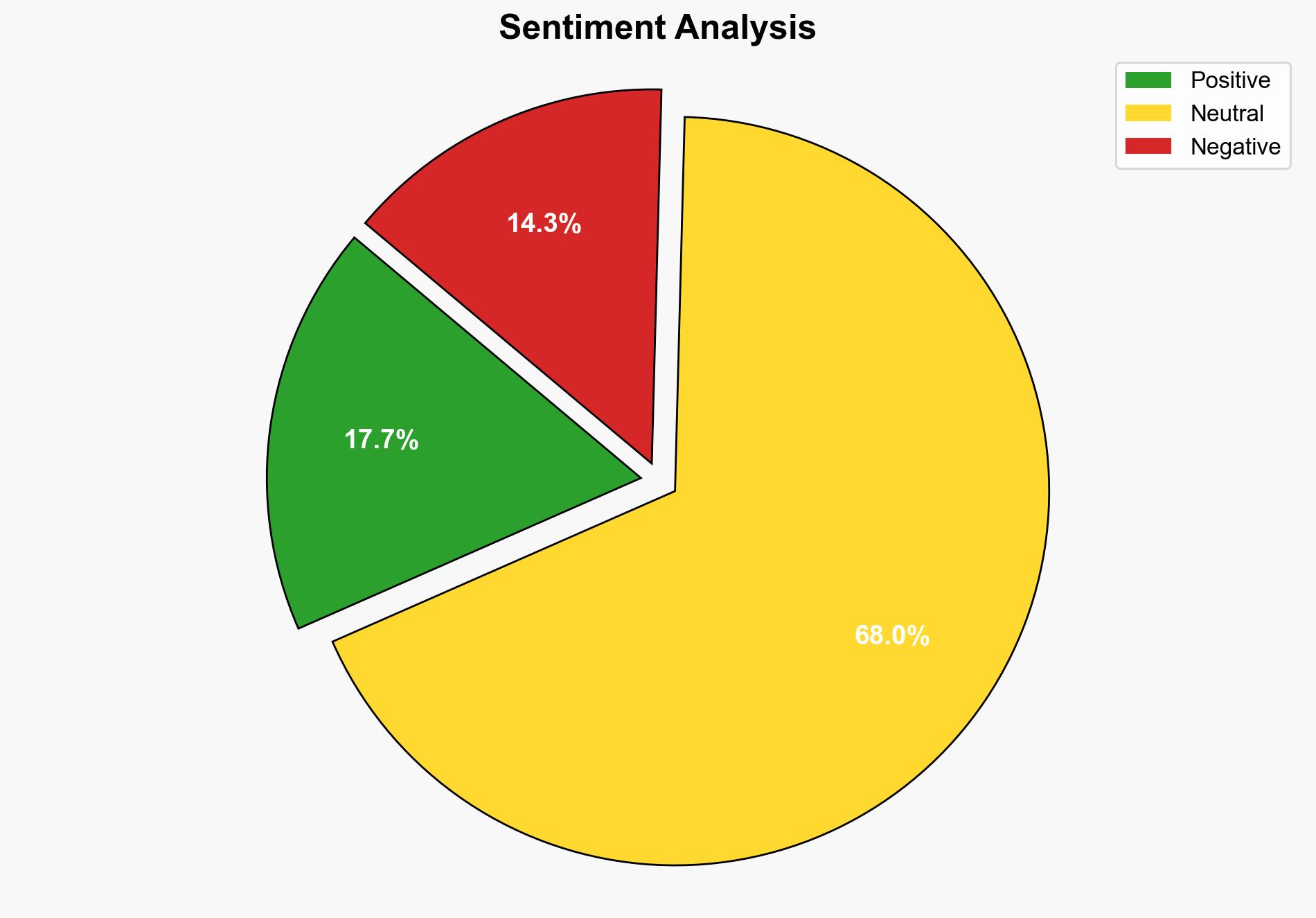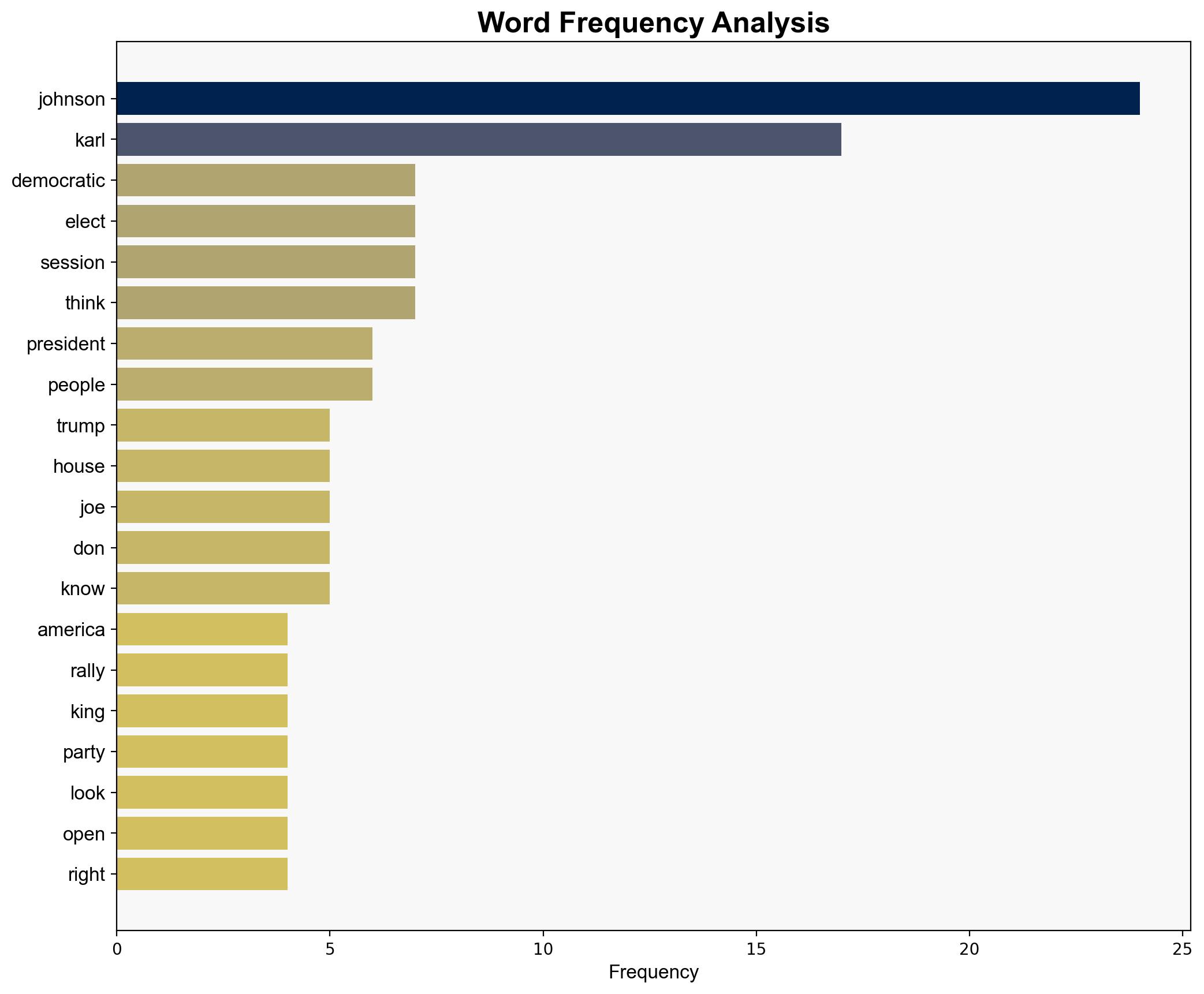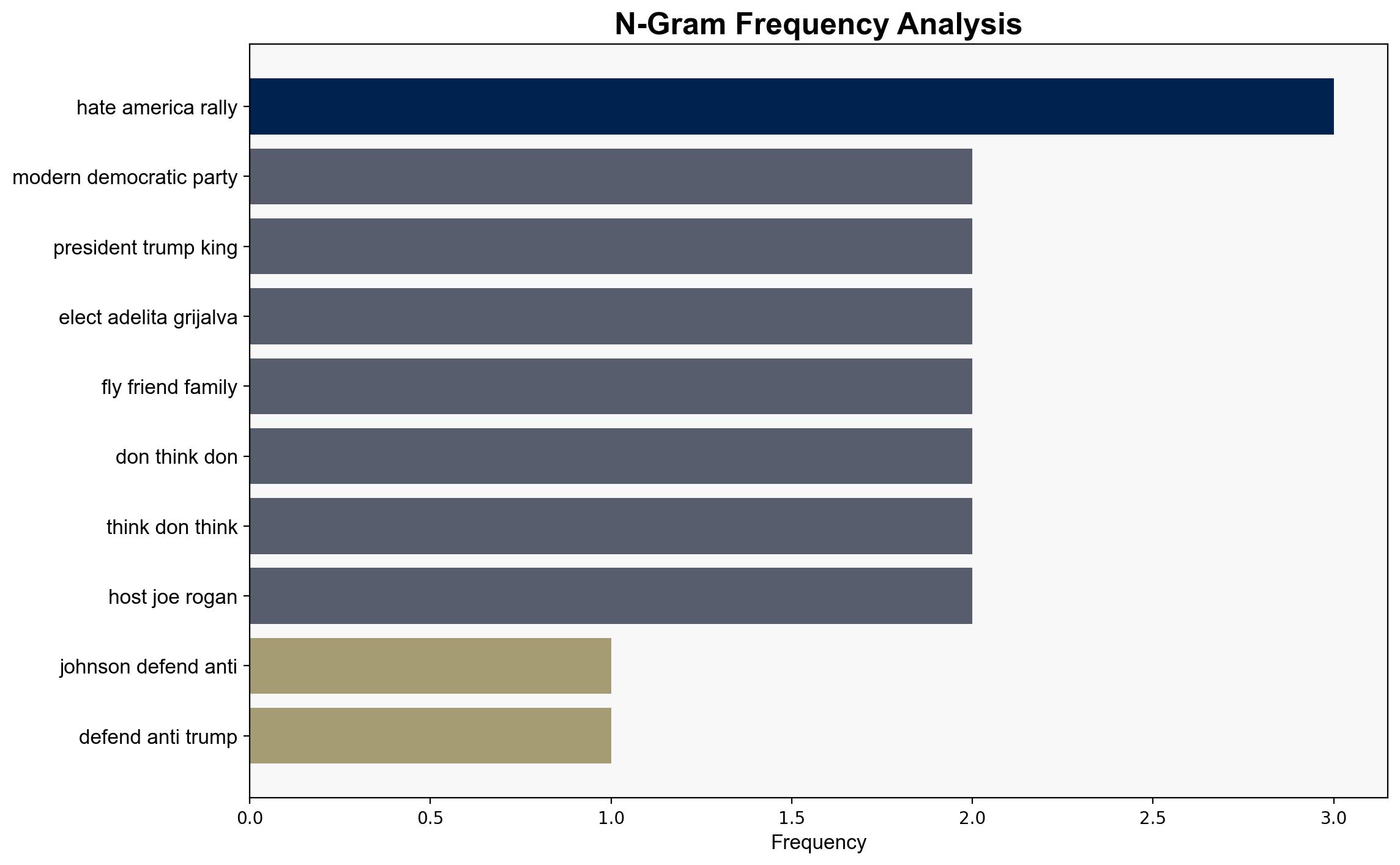Johnson defends calling anti-Trump protests ‘hate America’ rallies – ABC News
Published on: 2025-10-19
Intelligence Report: Johnson defends calling anti-Trump protests ‘hate America’ rallies – ABC News
1. BLUF (Bottom Line Up Front)
The strategic judgment is that Johnson’s defense of labeling anti-Trump protests as “hate America” rallies is primarily a political maneuver to consolidate support among conservative constituents by framing opposition as unpatriotic. This hypothesis is better supported by the available evidence. Confidence level is moderate due to the complexity of political motivations and potential bias in media portrayal. Recommended action includes monitoring rhetoric for escalation and potential impacts on political polarization.
2. Competing Hypotheses
1. **Hypothesis A**: Johnson’s statements are a strategic effort to galvanize the Republican base by framing opposition to Trump as unpatriotic, thus reinforcing a narrative of nationalism and loyalty.
2. **Hypothesis B**: Johnson’s comments reflect a genuine belief that the protests are driven by extremist elements within the Democratic Party, which he perceives as a threat to national unity.
Using ACH 2.0, Hypothesis A is more likely as it aligns with historical patterns of political rhetoric aimed at mobilizing support through nationalistic themes. Hypothesis B is less supported due to lack of concrete evidence linking mainstream Democratic activities to extremist ideologies.
3. Key Assumptions and Red Flags
– **Assumptions**: It is assumed that Johnson’s rhetoric is primarily politically motivated rather than based on verified intelligence of extremist influence.
– **Red Flags**: Potential bias in media reporting and selective interpretation of protest activities could skew perception.
– **Blind Spots**: Lack of direct evidence connecting mainstream Democratic figures to extremist actions.
4. Implications and Strategic Risks
The rhetoric could exacerbate political polarization and increase tensions between political factions. This may lead to heightened security risks during public demonstrations and potentially influence voter behavior. Economically, increased polarization could impact market stability if political uncertainty rises. Geopolitically, such rhetoric may affect international perceptions of U.S. domestic stability.
5. Recommendations and Outlook
- Monitor political rhetoric for signs of escalation and potential impacts on public safety.
- Engage in dialogue initiatives to reduce polarization and promote understanding between political factions.
- Scenario Projections:
- Best: Rhetoric de-escalates, leading to reduced polarization and improved political discourse.
- Worst: Escalation leads to increased violence and significant political unrest.
- Most Likely: Continued polarization with intermittent spikes in tension during key political events.
6. Key Individuals and Entities
– Mike Johnson
– Jonathan Karl
– Zohran Mamdani
– Adelita Grijalva
– George Santos
– Joe Biden
– Joe Rogan
7. Thematic Tags
national security threats, political polarization, public safety, media influence





